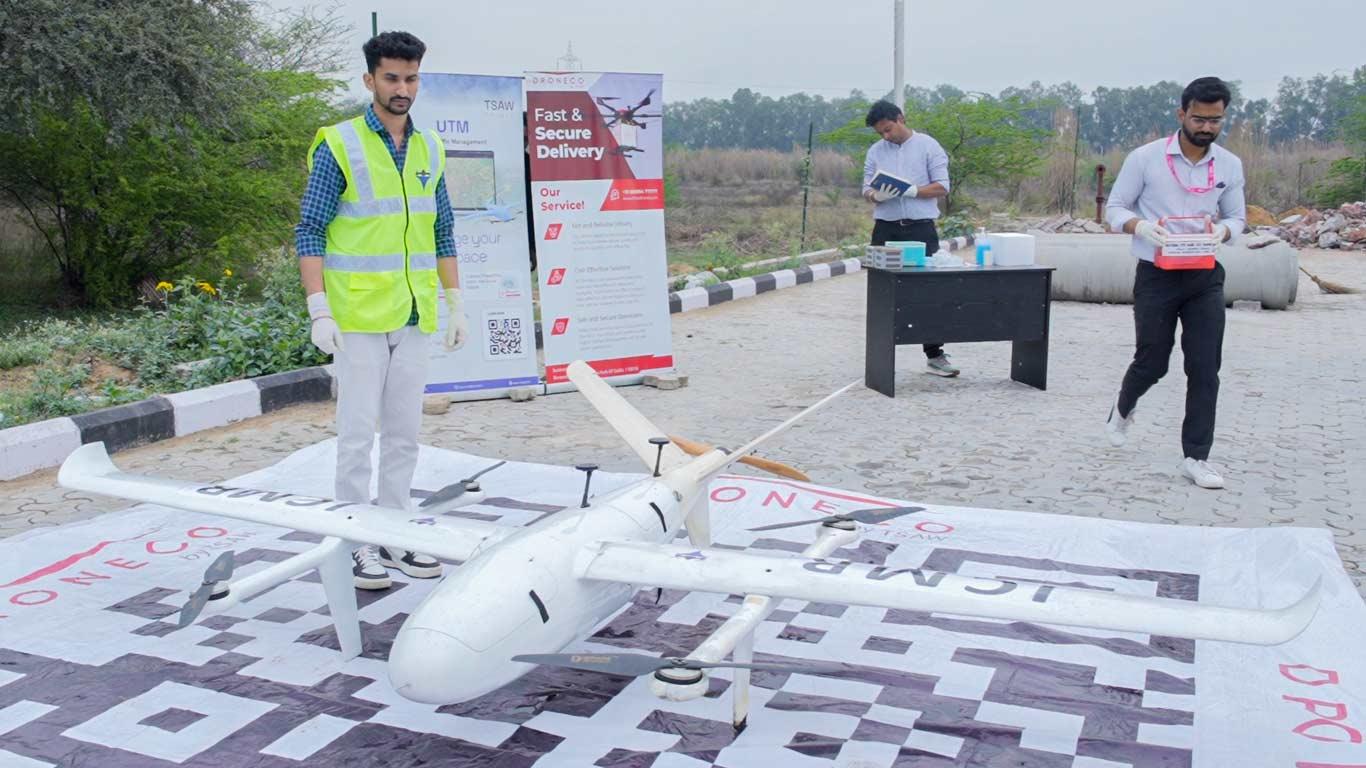
ICMR Pioneers Drone-Based Cornea Transport, Boosting Accessibility & Speed In Eye Care
The collaborative project, involving AIIMS New Delhi, Dr. Shroff's Charity Eye Hospital, and the Ministry of Civil Aviation, explored the feasibility of using unmanned aerial vehicles to transport sensitive ophthalmic biomaterials such as human corneas and amniotic membrane grafts.
During the pilot study, researchers successfully transported corneal tissue from Dr. Shroff's Charity Eye Hospital in Sonipat to the National Cancer Institute at AIIMS Jhajjar, and subsequently to AIIMS New Delhi.
The drone completed the journey in approximately 40 minutes, significantly reducing the traditional road transport time of 2-2.5 hours.
Critically, the drone maintained optimal conditions for specimen integrity, enabling a successful transplant surgery upon arrival.
This innovative approach addresses a significant challenge in healthcare delivery, particularly for time-sensitive medical materials.
Corneal tissue viability is extremely time-dependent, and traditional transportation methods often compromise tissue quality and reduce successful transplantation prospects.
Drone-based transport offers a swift, temperature-stable, and efficient alternative to conventional road networks, particularly in semi-urban and rural areas.
The initiative builds upon ICMR's i-DRONE platform, which has previously demonstrated successful medical supply deliveries across challenging terrains in states including North East India, Himachal Pradesh, Karnataka, Telangana, and the National Capital Region.
These efforts have encompassed vaccine distribution, medication delivery, and medical sample transportation under various challenging conditions.
Dr. Rajiv Bahl, Secretary of the Department of Health Research and ICMR Director General, emphasised that the project represents a significant step toward enhancing patient access and aligning with national innovation goals.
Shri Piyush Srivastava from the Ministry of Civil Aviation noted the collaboration's potential to solve complex healthcare challenges through technological innovation.
Prof. (Dr.) M Srinivas, Director of AIIMS New Delhi, underscored the critical implications for addressing corneal blindness, which affects millions in India.
The drone transport model could provide equitable access to vision-restoring surgeries, particularly in underserved regions.
The research aims to comprehensively document operational workflows, identify potential technical challenges, and generate evidence to support integrating drone logistics into routine medical practice.
Researchers will focus on developing protocols and best practices for aerial transport of time-sensitive and temperature-sensitive biological materials.
This groundbreaking study represents a significant advancement in medical logistics, demonstrating how technological innovation can potentially transform healthcare delivery in India.
By leveraging drone technology, medical institutions can overcome geographical barriers, reduce transportation times, and ultimately improve patient outcomes in critical medical interventions.
(KNN Bureau)
Legal Disclaimer:
MENAFN provides the information “as is” without warranty of any kind. We do not accept any responsibility or liability for the accuracy, content, images, videos, licenses, completeness, legality, or reliability of the information contained in this article. If you have any complaints or copyright issues related to this article, kindly contact the provider above.






















Comments
No comment